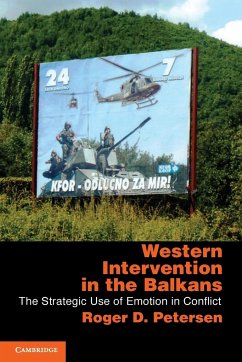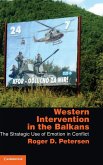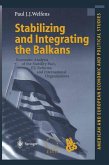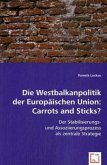This book integrates three elements in an examination of the strategic use of emotion in conflict: 1) a theory of how political actors use emotions; 2) a history of ethnic conflict in the former Yugoslavia over the past twenty years; and 3) a study of Western, primarily US, intervention practices.
Conflicts involve powerful experiences. The residue of these experiences is captured by the concept and language of emotion. Indiscriminate killing creates fear; targeted violence produces anger and a desire for vengeance; political status reversals spawn resentment; cultural prejudices sustain ethnic contempt. These emotions can become resources for political entrepreneurs. A broad range of Western interventions are based on a view of human nature as narrowly rational. Correspondingly, intervention policy generally aims to alter material incentives ('sticks and carrots') to influence behavior. In response, poorer and weaker actors who wish to block or change this Western implemented 'game' use emotions as resources. This book examines the strategic use of emotion in the conflicts and interventions occurring in the Western Balkans over a twenty-year period. The book concentrates on the conflicts among Albanian and Slavic populations (Kosovo, Montenegro, Macedonia, South Serbia), along with some comparisons to Bosnia.
Hinweis: Dieser Artikel kann nur an eine deutsche Lieferadresse ausgeliefert werden.
Conflicts involve powerful experiences. The residue of these experiences is captured by the concept and language of emotion. Indiscriminate killing creates fear; targeted violence produces anger and a desire for vengeance; political status reversals spawn resentment; cultural prejudices sustain ethnic contempt. These emotions can become resources for political entrepreneurs. A broad range of Western interventions are based on a view of human nature as narrowly rational. Correspondingly, intervention policy generally aims to alter material incentives ('sticks and carrots') to influence behavior. In response, poorer and weaker actors who wish to block or change this Western implemented 'game' use emotions as resources. This book examines the strategic use of emotion in the conflicts and interventions occurring in the Western Balkans over a twenty-year period. The book concentrates on the conflicts among Albanian and Slavic populations (Kosovo, Montenegro, Macedonia, South Serbia), along with some comparisons to Bosnia.
Hinweis: Dieser Artikel kann nur an eine deutsche Lieferadresse ausgeliefert werden.
"In this important and provocative book, Roger Petersen demonstrates the enormous power that can be achieved through the strategic use of emotions, by carefully analyzing a series of high-stakes interventions in the Balkans. Instead of ignoring emotions, or writing them off as irrational aberrations, Petersen offers a powerful analytical road map that invites us to view specific emotions as crucial resources utilized by political entrepreneurs to achieve their objectives. Serving as a coherent alternative to bloodless and rationalistic reconstructions of conflict processes, Western Intervention in the Balkans constitutes a major theoretical breakthrough that is of immediate scholarly and practical relevance well beyond the region that it covers."
- Lars-Erik Cederman, Eidgenössische Technische Hochschule Zürich
- Lars-Erik Cederman, Eidgenössische Technische Hochschule Zürich








